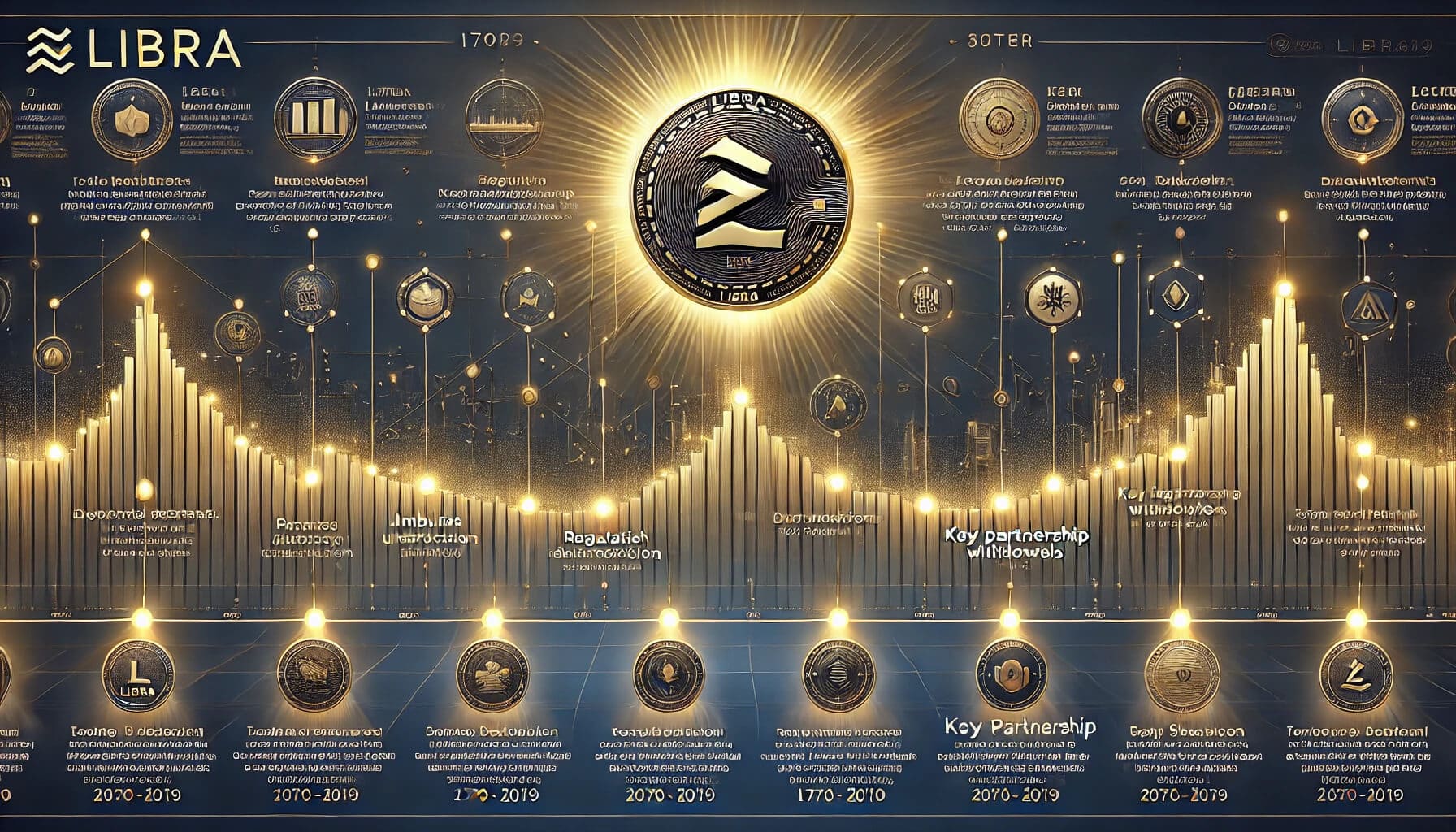Argentina is once again at the center of a major financial scandal, this time, involving cryptocurrency. President Javier Milei’s endorsement of the LIBRA token on social media triggered a surge in its price, only for the token to collapse within hours. The fallout has led to fraud accusations, legal investigations, and calls for Milei’s impeachment.
As the controversy unfolds, it raises pressing questions about the intersection of politics and cryptocurrency, investor protections, and the broader implications for Argentina’s economy.
The LIBRA Token Launch: What Happened?
The LIBRA token’s brief but explosive rise began when Javier Milei posted on social media endorsing the cryptocurrency. Within hours, the token’s value surged by over 8,000%, attracting thousands of investors eager to capitalize on what appeared to be a government-backed opportunity.
However, the excitement quickly turned into chaos as:
- Large holders dumped massive amounts of LIBRA, causing the price to plummet to near zero.
- Investors reported massive losses, with some estimates suggesting over $4 billion vanished in a matter of hours.
- Milei deleted his original post, attempting to distance himself from the token.
Initial Hype vs. Reality
The LIBRA token was heavily promoted across crypto communities and social media, leading many to believe that it had official ties to Argentina’s financial system. However, analysts quickly pointed out the lack of transparency behind the project, with no clear roadmap or governance structure.
By the time the dust settled, thousands of investors had lost their money, and allegations of market manipulation and fraud began surfacing.
Allegations and Investigations
- Fraud Accusations Against Milei
Legal experts have filed fraud charges against President Milei, accusing him of playing a direct role in a potential “rug pull”—a common crypto scam where developers artificially inflate a token’s value before disappearing with investor funds.
Notably, this isn’t the first time Milei has been linked to crypto controversies. In 2021, he promoted CoinX, which was later revealed to be a pyramid scheme.
- Official Responses
As outrage grew, Argentina’s Anti-Corruption Office launched an investigation, while members of the opposition called for Milei’s impeachment. His administration responded by denying direct involvement, claiming that Milei was misled by unknown third parties.
Despite these denials, leaked reports suggest that Milei’s team was well aware of the risks associated with LIBRA before promoting it.
The Political and Economic Context
Javier Milei has long positioned himself as a pro-crypto libertarian, advocating for Bitcoin adoption and deregulated financial markets. However, the LIBRA fiasco has raised doubts about whether his enthusiasm for crypto stems from economic ideology or personal financial interests. The scandal comes at a time when Argentina’s economy is already struggling with hyperinflation and financial instability. The LIBRA collapse has:
- Weakened investor trust in Argentina’s cryptocurrency market.
- Sparked concerns over regulatory oversight for digital assets.
- Increased international scrutiny on Milei’s economic policies.
Public and Expert Opinions
- Social Media Reactions
Social media platforms exploded with criticism, with many Argentinians accusing Milei of betraying his supporters. Some claim he knowingly participated in the scam, while others suggest he was used as a pawn by bad actors looking to exploit his influence.
A user on X (formerly Twitter) summarized the event:
“Milei promoted LIBRA, it shot up 8000%, then crashed. In just six hours, 44,000 people lost nearly $100 million. This is a disgrace.”
- Expert Analysis
Crypto analysts argue that this incident highlights the dangers of public figures endorsing financial products without due diligence. Many have called for stronger investor protections and stricter regulations for political figures engaging in financial promotions.
The Global Crypto Community’s Response
- International Repercussions
The LIBRA collapse has sparked discussions in global crypto forums, Reddit communities, and financial news outlets. Many are comparing it to past high-profile crypto scams, such as the Bitconnect Ponzi scheme and the FTX collapse.
- Comparative Analysis
Unlike traditional financial fraud cases, crypto scams often lack regulatory protections, making it difficult for victims to recover lost funds. This raises important questions about whether governments should implement stricter regulations on cryptocurrency endorsements.
Educational Resources
Understanding Crypto Scams
- Rug Pulls: Developers create a token, inflate its price, then disappear with the funds.
- Pump and Dump: Artificially boosting a token’s price before selling off large amounts.
- Ponzi Schemes: Promising high returns with no legitimate investment backing.
Investor Protection Tips
- Always research projects before investing.
- Be cautious of celebrity endorsements.
- Use reputable exchanges and wallets.
- Monitor blockchain activity for suspicious transactions.

Future Implications
Regulatory Response
Argentina’s government is now under pressure to implement stronger crypto regulations. Some experts predict that this scandal could lead to:
- Stricter advertising rules for financial products.
- Increased regulatory oversight on new token launches.
- Tighter legal consequences for misleading financial endorsements.
Milei’s Political Future
The scandal could have long-term consequences for Milei’s presidency. If legal charges proceed, it may:
- Undermine his credibility as a financial reformer.
- Hurt his political party’s future elections.
- Strengthen opposition efforts to remove him from office.
Final Thoughts
The LIBRA token scandal serves as a cautionary tale about the risks of unregulated cryptocurrency markets and the dangers of political figures endorsing financial products. As the investigations continue, Argentina—and the global crypto community, must grapple with the lessons and consequences of this historic event.
For more insights and real-time updates on crypto scandals, visit our Cryptocurrency Comparisons Guides.
Special Offer
Looking to trade and stake your airdrop earnings? Sign up on Bybit and claim up to $30,000 in deposit bonuses.

















